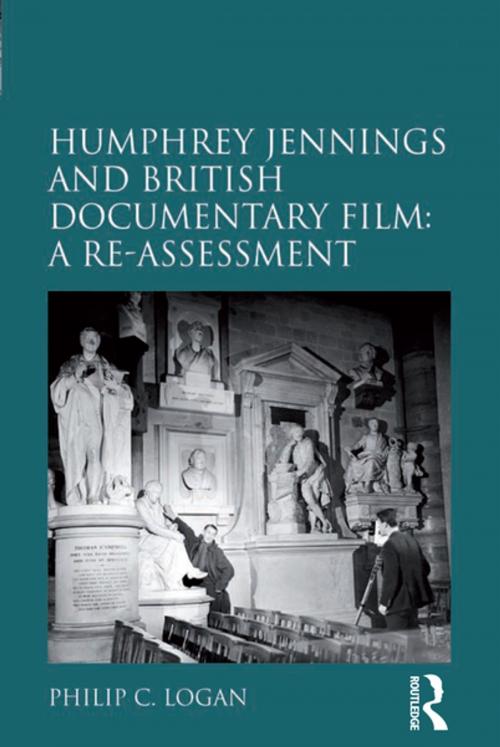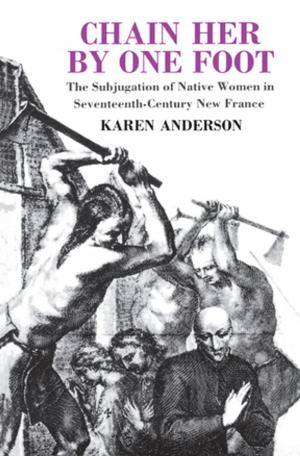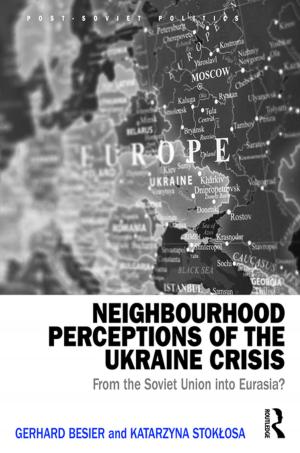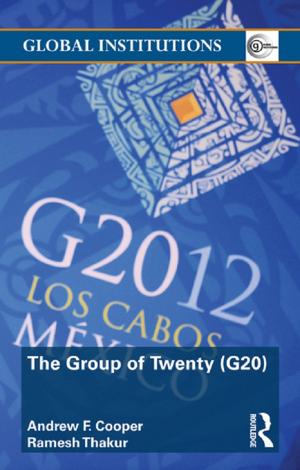Humphrey Jennings and British Documentary Film: A Re-assessment
Nonfiction, Entertainment, Performing Arts, Film| Author: | Philip C. Logan | ISBN: | 9781317119371 |
| Publisher: | Taylor and Francis | Publication: | May 13, 2016 |
| Imprint: | Routledge | Language: | English |
| Author: | Philip C. Logan |
| ISBN: | 9781317119371 |
| Publisher: | Taylor and Francis |
| Publication: | May 13, 2016 |
| Imprint: | Routledge |
| Language: | English |
Humphrey Jennings ranks amongst the greatest film makers of twentieth century Britain. Although a relatively unknown figure to the wider public, his war-time documentaries are regarded by many (including Lord Puttnam, Lindsay Anderson and Mike Leigh) as amongst the finest films of their time. Groundbreaking both in terms of their technique and their interest in, and respect for, the everyday experiences of ordinary people, these films are much more than mere government propaganda. Instead, Jennings work offers an unparalleled window into the British home-front, and the hopes, fears and expectations of a nation fighting for its survival. Yet until now, Jennings has remained a shadowy figure; with his life and work lacking the sustained scholarly investigation and reassessment they deserve. As such film and social historians will welcome this new book which provides an up-to-date and thorough exploration of the relationships between Jennings life, ideas and films. Arguing that Jennings's film output can be viewed as part of a coherent intellectual exercise rather than just one aspect of the artistic interests of a wide ranging intellectual, Philip Logan, paints a much fuller and more convincing picture of the man than has previously been possible. He shows for the first time exactly how Jennings's artistic expression was influenced by the fundamental intellectual, social and cultural changes that shook British society during the first decades of the twentieth century. Combining biography, social history and international artistic thought, the book offers a fascinating insight into Jennings, his work, the wider British documentary film movement and the interaction between art and propaganda. Bringing together assessments of his tragically short life and his films this book is essential reading for anyone with an interest in British cinema or the social history of Britain in the 1930s and 40s.
Humphrey Jennings ranks amongst the greatest film makers of twentieth century Britain. Although a relatively unknown figure to the wider public, his war-time documentaries are regarded by many (including Lord Puttnam, Lindsay Anderson and Mike Leigh) as amongst the finest films of their time. Groundbreaking both in terms of their technique and their interest in, and respect for, the everyday experiences of ordinary people, these films are much more than mere government propaganda. Instead, Jennings work offers an unparalleled window into the British home-front, and the hopes, fears and expectations of a nation fighting for its survival. Yet until now, Jennings has remained a shadowy figure; with his life and work lacking the sustained scholarly investigation and reassessment they deserve. As such film and social historians will welcome this new book which provides an up-to-date and thorough exploration of the relationships between Jennings life, ideas and films. Arguing that Jennings's film output can be viewed as part of a coherent intellectual exercise rather than just one aspect of the artistic interests of a wide ranging intellectual, Philip Logan, paints a much fuller and more convincing picture of the man than has previously been possible. He shows for the first time exactly how Jennings's artistic expression was influenced by the fundamental intellectual, social and cultural changes that shook British society during the first decades of the twentieth century. Combining biography, social history and international artistic thought, the book offers a fascinating insight into Jennings, his work, the wider British documentary film movement and the interaction between art and propaganda. Bringing together assessments of his tragically short life and his films this book is essential reading for anyone with an interest in British cinema or the social history of Britain in the 1930s and 40s.















